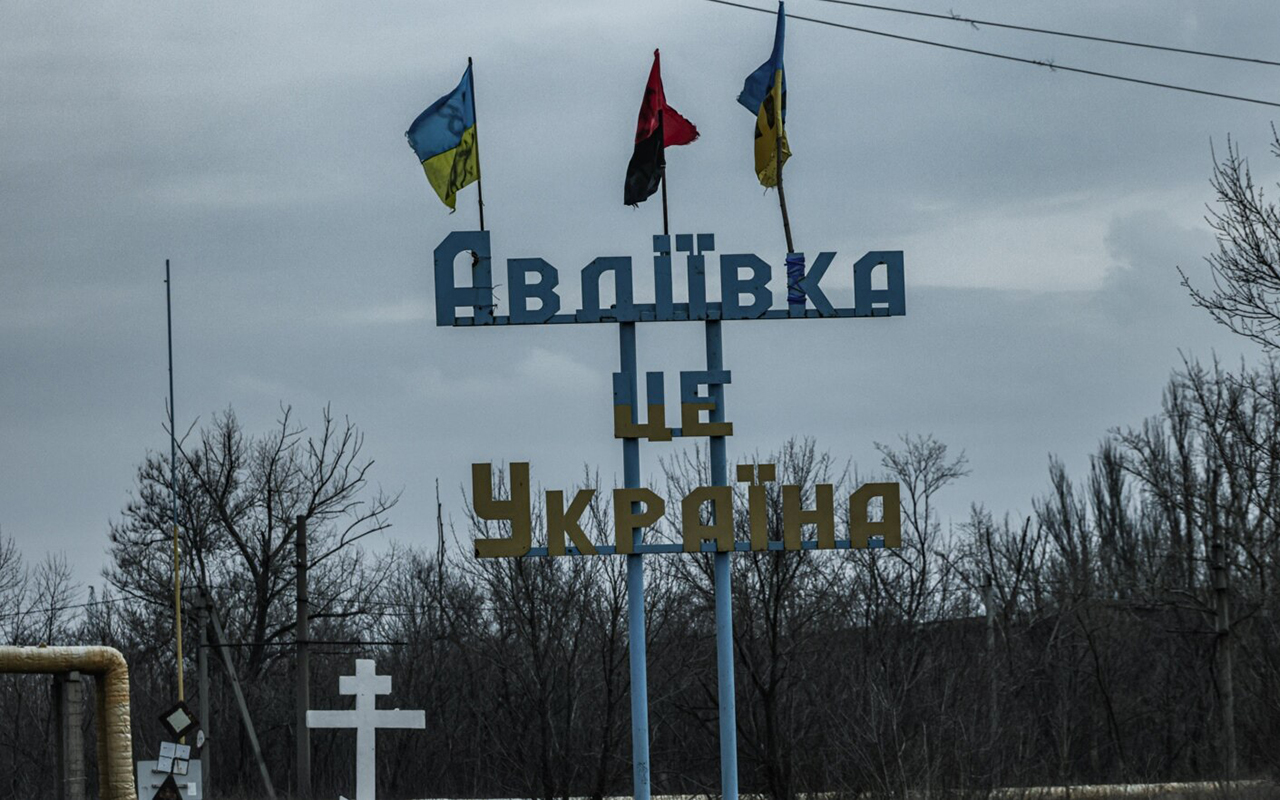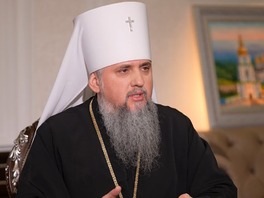The second year of the Russian-Ukrainian war unfolds against a challenging backdrop for the Ukrainian Defense Forces. Since October, Russians have intensified pressure across the entire front line. The allocation of American military assistance remains uncertain. Additionally, internal political forces are contributing to the instability within the country. This analysis by Apostrophe examines the key events on the front line in 2023.
The past year was marked by three significant military operations: the Russian winter-spring offensive, the Ukrainian summer offensive, and the ongoing Russian autumn offensive.
The beginning of 2023 witnessed intense battles with the Russian objective focused on seizing control of the city of Bakhmut in the Donetsk region. Military operations had commenced in the summer of 2022 and escalated in the fall, coinciding with the Russian withdrawal from Kherson. Evidently, Russian generals may have assured Putin that a 'gesture of goodwill' on the right bank of the Dnipro River would free up forces for a key objective in the "special operation" – reaching the administrative borders of Donetsk Oblast.
Alongside the troops relocating from the right bank of the Dnipro, the conflict in Bakhmut involved units from the private military company Wagner.
Wagner PMC emerged in the summer of 2014 to support terrorists in Donetsk and Luhansk. Subsequently, Wagner PMC was employed to advance Russian economic interests globally, from Syria to the Central African Republic. However, its equipment and manpower were inadequate for full-scale combat operations in east of Ukraine.
 In June 2023, militants of PMC Wagner staged a mutiny, almost captured Moscow
In June 2023, militants of PMC Wagner staged a mutiny, almost captured Moscow
A decision was then made to deploy a fully equipped military formation derived from Wagner, complete with tanks, artillery, and even aviation. To bolster the PMC's ranks and increase their number, Wagner opted to utilize prisoners, promising them early release upon signing a 6-month contract. Naturally, the state footed the bill for this entire affair, with top-level support for the project, as only the country's president holds the authority to sign pardons.
In a short span, the Wagner PMC transformed into a formidable force, maintaining discipline through executions and physical punishments. Casualties were disregarded—families either remained unaware that their imprisoned relatives were at war or chose not to communicate with them, even refusing to claim their bodies. Across Russia, numerous mass graves of ‘Wagnerites’ gradually emerged. Employing a tactic later dubbed ‘meat assaults,’ Wagner successfully organized an offensive on Bakhmut. Simultaneously, the first wave of partial mobilization commenced in Russia.
Regrettably, at a certain point, the Russian command managed to dictate the terms of engagement to the Ukrainian leadership. Amid political declarations of the ‘Bakhmut Fortress’ and speculations by various spokespeople about the Russians advancing beyond Chasiv Yar and Kostiantynivka if Bakhmut were lost, the Ukrainian Armed Forces began depleting their accumulated reserves in bloody street battles. Subsequently, territorial defense units, composed of relatively motivated individuals who had joined the army in February 2022, were thrust into the fight. Despite their high morale and willingness to engage, they lacked comprehensive military training. Street fighting, being a complex form of combat, demands serious skills. Naturally, the Russians had a numerical advantage, so by the end of May, almost the entire Bakhmut and its outskirts - or what was left of them - fell under Russian control. The Russians did not advance further, but Ukrainian units were also severely depleted.
 Destroyed Bakhmut
Destroyed Bakhmut
In June 2023, Wagner PMC criminal fighters staged an uprising and nearly seized Moscow. The attempt failed, costing the life of Wagner PMC founder Yevgeny Prigozhin and other leaders. Subsequently, Wagner PMC was effectively disbanded and absorbed into official Russian Ministry of Defense structures.
Against the backdrop of the ‘Bakhmut meat grinder,’ preparations commenced for the Ukrainian army's summer offensive, involving units trained in the West and equipped with Western weaponry. Simultaneously, an information campaign unfolded, framing the upcoming offensive as highly formidable and potentially game-changing. These narratives were spread both in the Ukrainian and in the Western information space.
Unfortunately, the outcome proved far more modest — a small strip of land on the left bank of the Dnipro River in the Kherson region was brought under control, along with a few settlements in the Zaporizhzhia region - progress beyond Urozhaine and Staryi Maiorsk on the Berdiansk axis was not achieved.
Analyzing the reasons behind these outcomes, Western journalists and military analysts point to an underestimation of the Russian fortifications deployed in southern Ukraine, as well as an insufficient quantity of provided weaponry and engineering equipment to breach minefields. Another intriguing perspective suggests that the Ukrainian General Staff initially planned an airborne operation akin to Normandy-1944. However,after the Russians blew up the Kakhovska HPP, the offensive was hastily shifted to the Zaporizhia direction.
 Catastrophic consequences of the explosion of the Kakhovskaya hydroelectric station
Catastrophic consequences of the explosion of the Kakhovskaya hydroelectric station
When the Russians determined that the offensive capabilities of the Ukrainian Armed Forces had been depleted, they shifted all available reserves from the south to the east, intensifying pressure simultaneously on the Avdiivka, Kupyansk, and Bakhmut axes.
As the active phase of the Russian advance continues, predicting its conclusion remains challenging. The aggressor is exerting every effort to seize control of Avdiivka, where the rationale is more political than military. Putin aims to secure a victorious narrative ahead of the spring 2024 presidential elections. Consequently, ongoing operations are anticipated in the direction of Avdiivka. It appears that our General Staff comprehends the situation well and will not squander reserves in attempting to defend the city through colossal personnel losses. Recent statements from the Chief of the General Staff of the Armed Forces of Ukraine, Valeriy Zaluzhny, provide grounds for optimism that this time, military leadership will prioritize the well-being of personnel and avoid exchanging lives for territory. However, the potential fall of Avdiivka could be leveraged for further societal unrest, although from a military standpoint, it does not pose a significant issue even for the Donetsk sector of the front.
As of mid-December 2023, the situation on the front lines for the Ukrainian army does not appear catastrophic, although the Russians have managed to achieve some tactical successes.
Despite the somewhat contentious outcomes on land, the maritime theater presents a significantly more optimistic picture. Armed with limited striking capabilities, the Ukrainian Armed Forces have effectively outclassed the Russian Black Sea Fleet, virtually evicting it from the occupied Crimea. The latest successful operation involved the destruction of the large landing ship ‘Novocherkassk’ in Feodosia overnight on December 26. In early November, the Ukrainian Armed Forces launched successful strikes on the maritime and port infrastructure of the shipbuilding plant ‘Zatoka’ in the temporarily occupied Kerch, obliterating the recently launched small missile ship ‘Askold.’ In September, a successful missile strike targeted the headquarters building of the Russian Black Sea Fleet in Sevastopol, and also caused significant damage to the large landing ship "Minsk" and the submarine ‘Rostov-on-Don,"’ undergoing repairs at the S. Ordzhonikidze plant in Sevastopol. During the summer, unmanned maritime drones struck the so-called ‘Crimean Bridge’ and another landing ship – ‘Olenegorskiy Gorniak,’ anchored in Novorossiysk. According to the UK Defense Minister Grant Shapps, over the past four months, the Ukrainian Armed Forces have neutralized 20% of Russia's Black Sea Fleet. Likely, this marks the first instance in world history where a country with virtually no navy has managed to dictate terms at sea to a significantly more powerful adversary.






